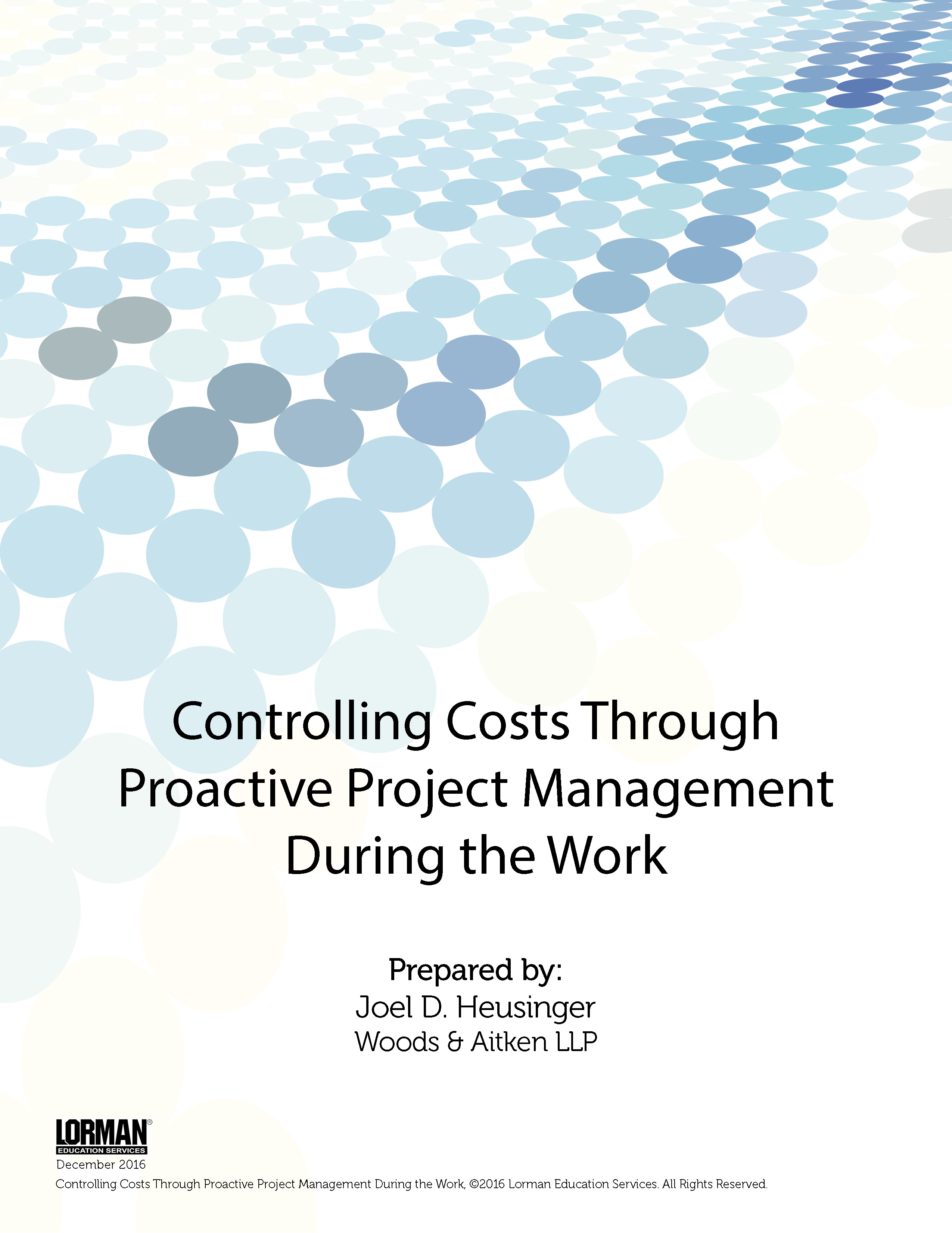Download this white paper to continue reading …
Joel D. Heusinger is a Partner in the law firm of Woods & Aitken LLP. His practice focuses on construction law and litigation. He has been involved in the resolution of hundreds of millions of dollars in numerous complex construction disputes throughout the United States. Mr. Heusinger routinely lectures and writes articles on construction law.
Agenda
Faculty

Joel D. Heusinger
Woods & Aitken LLP
- Partner in the law firm of Woods & Aitken LLP
- Practice focuses on construction law and litigation
- Fellow of the American College of Construction Lawyers
- Been involved in the resolution of hundreds of millions of dollars in numerous complex construction disputes throughout the United States
- Routinely lectures and writes articles on construction law
- J.D. degree, with honors, Duke University School of Law; B.A., degree, magna cum laude, Bob Jones University
- Can be contacted at 303-606-6717 or [email protected]
All of your training, right here at Lorman.
Pay once and get a full year of unlimited training in any format, any time!
- Live Webinars
- OnDemand Webinars
- MP3 Downloads
- Course Manuals
- Audio Recordings*
- Executive Reports
- White Papers and Articles
- Sponsored Live Webinars
Additional benefits include:
- State Specific Credit Tracker
- Members Only Newsletter
- All-Access Pass Course Concierge
* For audio recordings you only pay shipping
Questions? Call 877-296-2169 to speak with a real person.
Thank You!
Download White PaperMore Program Information

Access to all training products $699/year
Unlimited Lorman Training
With the All-Access Pass there is no guessing what you will need for your yearly training budget. $699 will cover all of your training needs for an entire year!
Easy Registrations
Once you purchase your All-Access Pass you will never be any further than one-click away from attending any Lorman training course.
Invest in Yourself
You haven't gotten to where you are professionally by luck alone; it's taken a lot of hard work and training. Invest in yourself with the All-Access Pass.